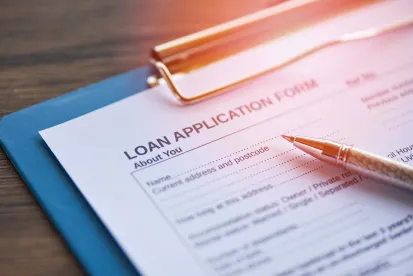On April 14, 2020, the U.S. Small Business Administration (SBA) issued its Third Interim Finale Rule[1] with respect to the Paycheck Protection Program (PPP), as enacted under the Coronavirus Aid, Relief, and Economic Security (CARES) Act. The Third Interim Final Rule is supplemental to the (i) First Interim Final Rule issued by the SBA on April 2, 2020, (ii) Second Interim Final Rule issued by the SBA on April 4, 2020 and (iii) Applicable Affiliation Rules fact sheet that was issued by the U.S. Department of Treasury (Treasury) on April 4, 2020 and (iv) the Frequently Asked Questions fact sheet (FAQ)[2] issued by the U.S. Department of Treasury (Treasury), which was last updated on April 15, 2020 at the time of this publication.
The Third Interim Final Rule provides additional interpretative guidance on the (i) participation in the PPP by self-employed individuals, (ii) eligibility of businesses owned by directors or shareholders of a PPP lender, (iii) eligibility of businesses that receive revenue from legal gaming and (iv) notice and consent requirements of the SBA in connection with PPP loans pledged for borrowings from a Federal Reserve Bank (FRB) or loan advances made by a Federal Home Loan Bank (FHLB).
Highlights of what we believe to be material new guidance or clarification of existing guidance in the Third Interim Final Rule are as follows:
-
Eligibility for Businesses Owned by Directors or Shareholders of a PPP Lender. The Third Interim Final Rule states that a business owned in whole or in part by an outside director or holder of less than 30% of the equity of a PPP lender is not prohibited from obtaining a PPP Loan from such PPP lender on whose board the director serves or in which the equity owner holds an interest, as applicable. A director or officer of a business who is also an officer or key employee of a PPP lender, however, is barred from obtaining a PPP loan from the PPP lender with which they are associated; instead, such director or officer must obtain a PPP loan from a lender with whom they have no such association. The SBA accommodates for the foregoing by waiving the applicability of certain existing federal regulations (including 13 CFR 120.110 and 13 CFR 120.140) to the PPP.[3] The SBA cautions that such business must follow the same process as any similarly situated customer or account holder of the PPP lender, and that the PPP lender must not curry favor towards such business in the form of processing time or prioritizing such business’s PPP application.
-
Expansion of Eligibility for Businesses Engaged in Legal Gaming. The Third Interim Final Rule establishes a new eligibility standard that a business in receipt of legal gaming revenues may use to qualify for the PPP. Any business in receipt of legal gaming revenues that satisfies the following two prong test is also eligible for the PPP:
(i) the business’s legal gaming revenue does not exceed $1 million in calendar year 2019; and
(ii) the business’s legal gaming revenue, net of payouts (but not other expenses), comprised less than 50% of the business’s total revenue in calendar year 2019.
This alternative eligibility standard for a business in receipt of legal gaming revenues is an additional test available for such business to qualify for the PPP. Under existing federal regulations, a business can otherwise qualify for the PPP if it derives less than one-third of its gross annual revenue from legal gambling activities.[4] For an analysis of other eligibility rules applicable to the PPP, please visit our article on the subject matter.
-
PPP Loan Pledges for FRB Borrowings and FHLB Advances without Prior SBA Consent. The Third Interim Final Rule confirms that, pursuant 13 CFR 120.135(d) and (e), PPP loans may be pledged for borrowings from a FRB or advances by a FHLB without prior written consent or notice to the SBA. The Third Interim Final Rule further clarifies that other requirements under 13 CFR 120.134 do not apply to PPP loans, such as the obligation for all pledged loan documents to be subject to the SBA’s satisfaction and for a multi-party agreement to be entered into among the SBA, lender, pledgee and other parties that the SBA deems as necessary.
Things are changing quickly and the measures and interpretations described here may change. Our analysis is necessarily limited by the time sensitivities of the current crisis as well as the absence of precedent for some of what is contained here. This analysis represents our best interpretation and recommendations based on where things currently stand.
FOOTNOTES
[1] The Third Interim Final Rule is effective without advance notice and public comment because section 1114 of the Cares Act authorizes the SBA to issue regulations to implement Title I of the CARES Act without regard to notice requirements.
[2] The FAQ does not carry the force and effect of law independent of the CARES Act and regulations on which it is based.
[3] For the avoidance of doubt, the Third Interim Final Rule confirms that a PPP lender should comply with all other applicable state and federal regulations concerning loans to associates of such PPP lender.
[4] 13 CFR 120.110(g).



 />i
/>i

